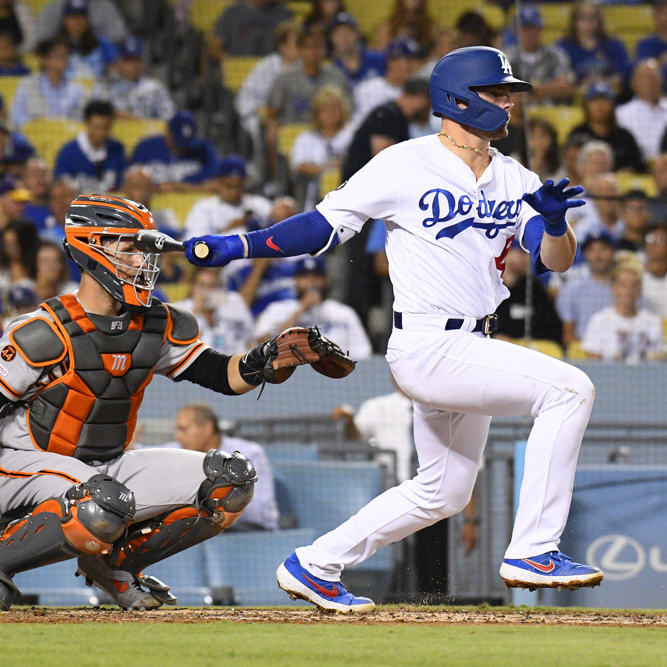This article is part of our Painting the Black series.
The Closing Epidemic - Are Managers Pulling the Plug Too Early?
I've never experienced a blown save as a team's closer in my time in the big leagues. 13 for 13 in 2008. Perfection. Ok, so it's not a long enough time to go through the eventual mishap of not closing out a game. But in recent years, especially so far in 2014, closers are being yanked from their posts at an alarmingly quick rate. Why ye of little faith?
Let's establish a couple things first. The injury bug is wrecking havoc in the reliever ranks. There's been no bigger impact from it than on the 9th inning men. Only 10 games into the regular season and the infirmary list is as follows:
CWS: Nate Jones (DL) - now, Matt Lindstrom
CIN: Aroldis Chapman (DL) - now, Jonathan Broxton
NYY: David Robertson (DL) - now, Shawn Kelley
NYM: Bobby Parnell (DL) - now, Jose Valverde
TOR: Casey Janssen (DL) - now, Sergio Santos
How about the "umm, we didn't see that coming at all ... especially on Opening Day?!" switcheroo in Milwaukee? Jim Henderson (28 saves in 2013, 0.00 ERA in 4 GMs in 2014) did nothing in spring training to second guess his ability. Manager Ron Roenicke decided to take a "blast from the past" in Francisco Rodriguez in the first game of the year.
Then, the extremely quick hook for an awful early April in Oakland. Jim Johnson (18.90 ERA in 5 GMs, 3 BS) probably never wants
The Closing Epidemic - Are Managers Pulling the Plug Too Early?
I've never experienced a blown save as a team's closer in my time in the big leagues. 13 for 13 in 2008. Perfection. Ok, so it's not a long enough time to go through the eventual mishap of not closing out a game. But in recent years, especially so far in 2014, closers are being yanked from their posts at an alarmingly quick rate. Why ye of little faith?
Let's establish a couple things first. The injury bug is wrecking havoc in the reliever ranks. There's been no bigger impact from it than on the 9th inning men. Only 10 games into the regular season and the infirmary list is as follows:
CWS: Nate Jones (DL) - now, Matt Lindstrom
CIN: Aroldis Chapman (DL) - now, Jonathan Broxton
NYY: David Robertson (DL) - now, Shawn Kelley
NYM: Bobby Parnell (DL) - now, Jose Valverde
TOR: Casey Janssen (DL) - now, Sergio Santos
How about the "umm, we didn't see that coming at all ... especially on Opening Day?!" switcheroo in Milwaukee? Jim Henderson (28 saves in 2013, 0.00 ERA in 4 GMs in 2014) did nothing in spring training to second guess his ability. Manager Ron Roenicke decided to take a "blast from the past" in Francisco Rodriguez in the first game of the year.
Then, the extremely quick hook for an awful early April in Oakland. Jim Johnson (18.90 ERA in 5 GMs, 3 BS) probably never wants to see the Cleveland Indians to begin a season ever again. Luke Gregerson now gets the first crack at the closer-by-committee approach for the Athletics.
So what's to blame? Closers are creatures of habit just like any other relief pitcher. They thrive on routine and preparation, just like any other bullpen guy. The problem becomes when teams struggle to get leads to put their closers in save situations. "Stoppers" rarely get regular work because of that, on the presumption that, if there's no save situation this day, then the following day they must be ready in case of a 1-3 run lead in the 9th.
I've pitched in every bullpen role during my career in the big leagues. I know how to prepare as a long reliever, situational man, setup guy, and closer. Each role's preparation and upkeep is slightly different:
- Long relievers can go 10-12 days without seeing game action, by much the same principle of a closer - if a starter gets blown out early, the long guy needs to save the pen by going 3-4 innings.
- Setup and situational guys get the bulk of bullpen work. They routinely can see 3-4 days straight, or even 4 of 5 days in a normal "work week." The situations they enter occur much more regularly during the course of any game than a long reliever or closer.
So how can you blame a closer that has sat for five days straight without a save situation, then expect him to perform with the game on the line? It's an immense mental struggle to stay sharp, far more than any other role in the bullpen. The spotlight is, and always will be, on you to get the three most important outs of the game. You're a glorified field goal kicker. You get the job done, or you don't.
How do you "rehabilitate" a closer's confidence when he's blown a few saves in a row? The answer is simple: a very, VERY short memory. One of the great teammates I had the pleasure of playing with was Joe Borowski. He led the AL in 2007 with 45 saves, but never threw a pitch over 90 mph. His 9th innings, as any Cleveland fan can tell you, were high-drama, high-wire acts. Mini-heart attacks all over the place, until he got the final out. When he blew a save, he'd come back the next day like nothing ever happened. He amazed me to see his ability to forget the past so quickly.
By the same token, my setup man when I closed in 2008 was Brendan Donnelly. For years, he set up the great Troy Percival in his time with the Anaheim Angels. "Big D" always told me, "nobody cares how you do it; just make sure when you get the 3rd out, you're up by one run. As long as that happens, they can't say anything about you. Might not be the prettiest inning ever, but you did your job."
Those two guys helped shape my mental psyche as I developed in my career. I approached every situation like it was a closing situation. It allowed me to simplify situations into purely executing my pitches and thinking of nothing else. Much easier said than done, however. Until you're in those heart-pounding positions, nothing can prepare you for how your mind races to places of doubt and failure. It's a constant internal battle to remain poised when things around you go haywire. That's why so many New York Yankee fans appreciated Mariano Rivera. "Automatic" isn't an adjective thrown around when talking closers. Mo embodied it. And every hitter that came to face him already felt like they were behind 0-2.
Fast forward to present day circumstances. I'm a firm believer that relievers should get the benefit of the doubt in April, especially closers. Offenses are battling the elements in cold climates, playing at real "game speed" for the first time, and swinging at much more than they might later in the year. All of these can create the perfect storm for a closer not getting regular save chances or falling victim to negative results.
I've never been a manager, but I can tell you this - if you trusted me to do the job a large part of the previous season, there's no reason to think I can't do the job now. Mistakes happen, pitchers are human. Bad streaks take place at any point. Unfortunately, some can occur right at the beginning of a season. That doesn't diminish the skill or ability of your stopper. It's just Baseball. You don't sit down your star cleanup hitter if he goes 0-18 to start the year. You let him "grind it out", "get his timing down," "he's got a track record" and "this will pass" are the typical excuses. So why can't it be the same with pitchers, above all your "star" reliever? Position players and pitchers are treated completely differently in that regard. And it can kill the confidence of the guy you're entrusting to nail down W's at the end of ballgames. Not to mention you're telling all the other relievers in succession that, if the "rope is short" for your closer, what's it going to be for the next guy?
It's time to let your bullpen do their job, whether they get off to a hot start or not. These are the seven guys you believed in when you broke camp. There's no reason results one week into the season should shake you that much to be making wholesale changes.










